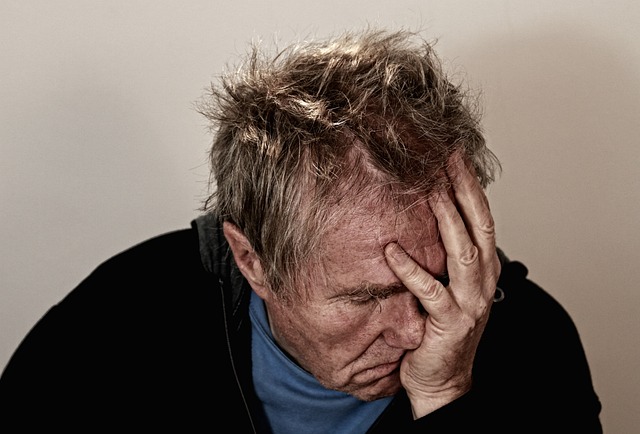20+ Years Experience
Specialist Private Alcohol Rehab

Are you considering quitting alcohol but unsure of the potential risks associated with stopping suddenly?
Understanding the dangers of abrupt alcohol cessation and the importance of proper management can be life-saving.
In this blog post, we delve into the complexities of alcohol withdrawal, its symptoms, and how to safely navigate the journey towards sobriety.
When it comes to quitting alcohol, going “cold turkey” might seem like the most straightforward approach.
However, an abrupt cessation of alcohol intake can trigger potentially hazardous alcohol withdrawal symptoms, such as:
These severe symptoms may appear within hours of the last alcoholic drink and can escalate to life-threatening conditions if not addressed.
Alcohol withdrawal can manifest in a variety of ways, especially when experiencing alcohol withdrawal.
Symptoms can vary from minor, uncomfortable physical and psychological changes to serious, life-threatening conditions.
Recognising the symptoms of alcohol withdrawal is crucial, and professional care from specialised alcohol rehab facilities is highly recommended for safety during this critical period.
If you experience severe withdrawal symptoms should not be ignored. Seek medical attention urgently if you or someone you know is experiencing these common symptoms.
Seizures and delirium tremens (DTs) are life-threatening symptoms of alcohol withdrawal that can occur when alcohol use is abruptly ceased.
Individuals experiencing DTs may suffer from impaired clarity, elevated body temperature, and perceptual disturbances.
Both seizures and DTs can result in serious health complications, including dehydration, electrolyte imbalances, and even mortality.
Underlining the need to obtain medical assistance for seizures and delirium tremens is vital. Prompt medical attention is imperative to avert severe health issues and potential fatality.
A healthcare professional can provide the necessary support and treatment for these dangerous symptoms of alcohol withdrawal.
Dehydration and electrolyte imbalances are common side effects of alcohol withdrawal, which can potentially lead to further complications if not addressed in a timely manner.
These complications may include confusion, seizures, and even mortality.
Securing medical help is necessary if you are suffering from dehydration and electrolyte imbalances. Treatment may involve IV fluids, electrolyte replacement, and medications.
Another severe complication of alcohol withdrawal is Wernicke-Korsakoff syndrome (WKS).
WKS is comprised of two distinct syndromes: Wernicke’s encephalopathy, a severe yet transient condition, and Korsakoff’s psychosis, a debilitating condition that results in long-term memory and cognitive deficits. Both conditions necessitate prompt medical treatment.
The severity of alcohol withdrawal symptoms can vary greatly among individuals, and several factors may contribute to this variability.
Age, health, and drinking history can all influence the intensity of withdrawal symptoms experienced when ceasing alcohol consumption.
Older individuals, for example, may experience withdrawal symptoms that are more pronounced due to the body’s decreased capacity to metabolise alcohol.
Those with prior medical or psychiatric issues may encounter more intense or dangerous withdrawal symptoms as a result of the extra strain on the body.
Additionally, individuals who have had prior episodes of alcohol withdrawal may experience more severe symptoms due to the body’s heightened sensitivity to alcohol.
These factors emphasise the need for a tailored treatment plan that considers individual circumstances.
Successfully managing alcohol withdrawal requires a multifaceted approach, encompassing medical detoxification and support systems.
Both components are crucial to guarantee a safe and effective withdrawal process, minimise complications, and set the groundwork for long-term recovery.
A thorough detox is the first step in the process, and it involves the use of medications.
Medical detox offers continuous care and medications to control withdrawal symptoms and avert complications.
Relatively long-acting benzodiazepines are employed to manage acute alcohol withdrawal, reducing the risks for complications such as seizures.
This round-the-clock medical supervision ensures that any emerging issues are swiftly addressed, providing the best possible outcome for the individual in withdrawal.
Following a detox, individuals commonly remain within a residential inpatient setting for an alcohol rehabilitation program.
Here, addicts have the opportunity to concentrate solely on recovery from addiction. Therapeutic sessions, aid groups, and other treatments are available to ensure lasting results.
Emotional support is essential when safely managing alcohol withdrawal, as it can offer comfort and reassurance throughout the withdrawal process.
Counselling, AA, and medical professionals can provide assistance in navigating the difficulties of alcohol withdrawal and recovery.
Alcohol rehab counsellors provide support during the highs and lows of withdrawal, aiming to identify any potential underlying factors that may have contributed to addiction and offering guidance on effective management strategies.
Support groups such as Alcoholics Anonymous (AA) and Al-Anon provide a platform for individuals to discuss treatment goals and struggles with others in the process of recovering from alcohol abuse.
These supportive environments foster a sense of camaraderie and understanding, helping individuals to maintain their commitment to sobriety.
The onset of alcohol withdrawal symptoms can commence shortly after the cessation of alcohol intake, reach a peak at 48 hours, and persist for days or weeks, depending on the severity of the addiction.
The onset of alcohol withdrawal syndrome can be as early as two hours after a person’s last drink. Its symptoms may range from mild to severe.
Given the potential for mild and severe alcohol withdrawal symptoms, such as:
Since alcohol withdrawal can cause medical complications and can even be life-threatening when impacting physical and mental health, medical supervision is crucial when deciding to stop drinking altogether.
During this critical period, access to medical support and resources is vital.
Alcohol addiction rehabs provide a safe, secure, and comfortable environment when experiencing moderate or severe withdrawal symptoms, ensuring that individuals have the best possible foundation for recovery.
Identifying the signs of alcohol use disorder is key to seeking appropriate help with treatment for alcohol abuse.
Alcohol dependence, or alcoholism, can lead to a variety of health issues and is characterised by an intense, often uncontrollable, urge to drink and a feeling that one cannot function without alcohol.
Alcohol dependence is a form of ‘alcohol-use disorder’ and is distinct from ‘harmful drinking’, another type of alcohol-use disorder that involves excessive drinking without actual dependence.
If you suspect you may be dependent on alcohol, seeking medical assistance and consulting a healthcare professional at your GP surgery on how to reduce your alcohol consumption is crucial.
The World Health Organisation’s AUDIT tool is an internationally recognised assessment utilised by medical professionals to evaluate potential harm caused by being dependent on alcohol.
If you think you have an alcohol use disorder, make sure to seek medical help or speak to family members or supportive friends. Alcohol addiction should not be left untreated, as it can have extremely dangerous consequences.
Alcohol affects various areas of the body from high blood pressure to issues with the central nervous system.
Abstaining from alcohol can have far-reaching, long-term benefits for your health and well-being. Some of these benefits include:
A reduction in blood pressure can be observed in many individuals who quit drinking alcohol. After three months of abstaining from alcohol, you may notice:
Before making significant alterations to alcohol consumption, it’s important to consult with a healthcare professional to ensure safe and appropriate changes.
Drinking safely is extremely important to ensure you do not experience withdrawal symptoms after alcohol leaves your body. Heavy drinkers can also cause a lot of damage to their body including liver disease, heart disease and more.
Seeking help for alcohol addiction can take many forms.
One option is to connect with a treatment provider who can guide you through the process of recovery and provide the necessary resources and support.
Support groups such as Alcoholics Anonymous (AA) can also be invaluable, offering a platform for individuals to share their experiences and learn from others on the path to recovery.
A consultation with a healthcare professional for assistance with alcohol addiction can deliver personalised guidance and resources adjusted to your unique needs and circumstances.
No matter which route you choose, seeking help is the first step towards a healthier, alcohol-free life.
Understanding the complexities of alcohol withdrawal and the importance of proper management is crucial for a successful recovery from alcohol dependency.
With the guidance of medical professionals, a strong support system, and perseverance, individuals can safely navigate the challenges of alcohol withdrawal and embrace the long-term benefits of a life free from alcohol dependence.
Take the first step towards a healthier, happier life by seeking help today.
It is not safe to stop drinking cold turkey without the support of a doctor or health professional.
This is because it may lead to acute and uncomfortable withdrawal symptoms.
A more manageable approach would be to gradually reduce each day in order to ensure a “soft landing”.
When you stop drinking alcohol on your own, mild withdrawal symptoms will typically start within 8-24 hours.
These can include increased heart rate and blood pressure.
In more severe cases, you might experience hallucinations, seizures, and delirium tremens (‘DTs’).
Once you have started drinking, it can be very difficult to stop.
Alcohol hijacks the brain’s reward system and causes physical dependence, resulting in increased tolerance and withdrawal symptoms if drinking is suddenly stopped.
It’s not just a lack of willpower, so anyone struggling should reach out for help.
To safely manage alcohol withdrawal, it is essential to receive medical detox and seek counselling or join a support group.
Quitting alcohol can lead to a range of long-term benefits, such as:
There are a range of other services that we can provide. Have a look at the list below for more information:


















We Aim To Reply To All Enquiries With-in 24-Hours